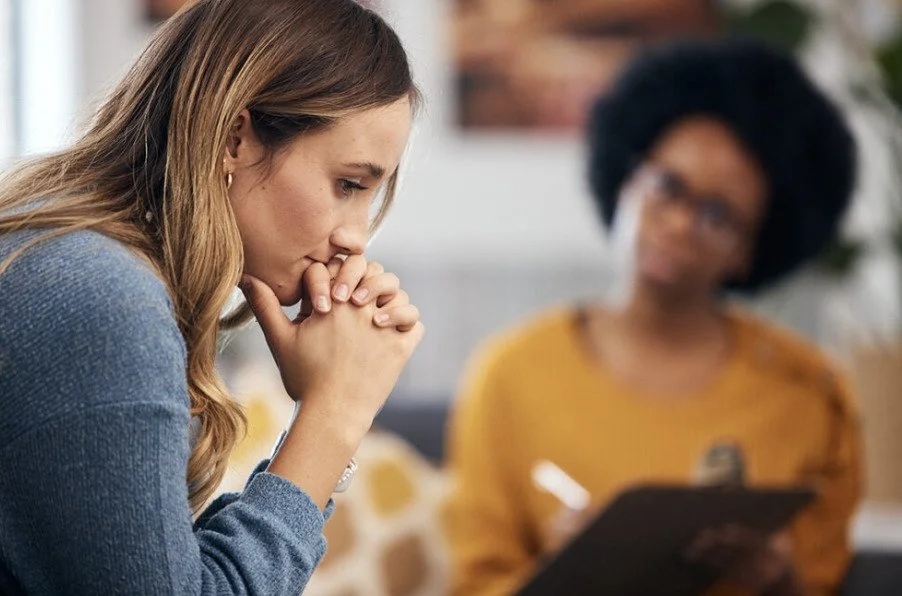Anxiety Therapy: Understanding Avoidance and How Therapy Helps
Anxiety is something most people experience at some point in their lives. For some, it comes and goes quickly, while for others it lingers and interferes with daily life. One of the most common ways people try to cope with anxiety is through avoidance, steering clear of situations, places, or even thoughts that bring on feelings of fear or worry.
At first, avoidance makes perfect sense. If public speaking leaves you shaky and panicked, turning down the presentation feels like relief. If social gatherings stir up self-doubt, staying home seems like the safer option. For a moment, it feels like the anxiety is gone. But here’s the catch: while avoidance provides short-term comfort, it often ends up strengthening anxiety over time.
Why Avoidance Fuels Anxiety
Avoidance works like a quick fix, it turns the volume down on uncomfortable emotions, but only temporarily. Each time you avoid something, your brain gets the message:
“That situation really is dangerous.”
“The only way I can feel safe is to escape it.”
Over time, this can cause your world to shrink. Opportunities get missed, relationships feel harder to maintain, and self-confidence begins to erode. The more you avoid, the less evidence you gather that you can handle challenges, and anxiety starts to call the shots in your life.
For example, someone who avoids driving because of panic attacks may initially feel relief. But as weeks or months pass, they may find themselves unable to visit friends, get to work comfortably, or enjoy the freedom they once had. What started as a protective strategy becomes a trap.
How Therapy Helps Break the Cycle
The good news is that avoidance doesn’t have to define your life. Therapy offers support, tools, and guidance for facing anxiety in healthier, more empowering ways.
1. Spotting Avoidance Patterns
Avoidance isn’t always obvious. Sometimes it’s clear, like canceling plans or refusing a work task. Other times it’s subtle, like procrastinating, distracting yourself with busyness, or relying on others to step in. Therapy helps you identify these patterns and understand how they keep anxiety alive.
2. Building Coping Skills First
Before asking you to face fears directly, therapy equips you with strategies that make the process feel more manageable. This might include breathing exercises, grounding techniques, mindfulness practices, or skills for challenging anxious thoughts. These tools give you a sense of stability and confidence to take the next step.
3. Gradual, Supported Exposure
One of the most effective approaches for avoidance is gradual exposure. Instead of diving straight into the most difficult situation, you start small. If speaking up in meetings feels overwhelming, the first step might be sharing a short comment with a trusted colleague. Over time, with guidance, these steps expand. Each successful moment teaches your brain:
“I can do this, and nothing terrible happened.”
4. Reframing Anxious Thinking
Anxiety often magnifies the worst-case scenario. At Healing voices psychotherapy, we show you the tools that help you look at these thoughts more realistically and replace them with balanced perspectives. Rather than assuming failure or danger, you learn to consider alternative outcomes, and build resilience when things don’t go perfectly.
5. Reclaiming Your Life
Ultimately, the goal isn’t just reducing anxiety, it’s about helping you live more fully. At Healing Voices Psychotherapy we would like to support you through therapy in reconnecting with the parts of life avoidance may have taken away: spending time with friends, pursuing goals, or trying new experiences. Each step builds a stronger sense of self-trust and freedom.
Moving Forward
If avoidance has been running your life, anxiety therapy offers a safe space to learn new ways of coping. Instead of letting anxiety dictate what you can and cannot do, therapy empowers you to build resilience, face challenges, and reclaim the parts of life that matter most to you. At Healing Voices Psychotherapy, our registered psychotherapist Alysha Plaggemeier offers a free 15-minute consultation where you can ask questions and express your concerns in a supportive, judgment-free space.

